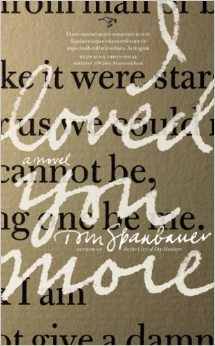
There are two things you need to know before you read my review of Tom Spanbauer’s fifth novel, “I Loved You More” (Hawthorne Press). Thing one: I was in Tom’s Dangerous Writers writing group up in Portland, Oregon for a year and a half, and Tom was my fiction writing teacher for six years. So I’m biased, I admit it; I think Tom’s a damn good writer, one of the best.
Thing two: I’m straight. It’s important you know that, given the story Tom, who is gay, tells in “I Loved You More.”
Tom’s book – which spans 25-years starting in the mid-‘80s — is about a gay man, Ben Grunewald (Gruney), who falls in love with a straight man, Hank Christian (the Maroni), and then, years later, in the third and final part of the book, while still in love with Hank, becomes emotionally involved with a straight woman, Ruth Dearden. Ben is devastated, and feels totally betrayed when Hank hooks up with Ruth and those two get married.
OK, that really doesn’t do it, so let me try again.
Tom’s book is 466 pages of heartbreak. Think about the love affair that went so wrong for you, the one that tore you down, left you devastated and in pieces. Yeah, that’s this book.
When the “I Loved You More” starts, everything that Ben is going to tell us has already happened. And Ben reveals right up front, in the first nine pages, that this story is about a love triangle, and that Ben ended up the odd man out. Tells us right at the start that Hank married Ruth. In other words, tells us upfront that this is a tragedy, and things are not going to end well.
The rule of three.
Tom writes:
More than likely, you’re like me and think that something like this could never happen to you. That you could love a man, then love a woman – two extraordinary people, two unique ways of loving, from different decades, on different ends of the continent, and then somehow, through an accident of the universe, or a destiny preordained – either way you’ll never know – what’s important is that what happens is something you could never in a million years have planned, and there you are the three of you, dancing the ancient dance whose only rule is with three add one, if not, subtract. If three doesn’t find four, three goes back to two.
Add or subtract, that’s the rule.
So we know at the start how it ends. Well sort of. Not exactly. Tom makes us readers think we know how it ends, but of course we don’t.
Read the rest of this review here.